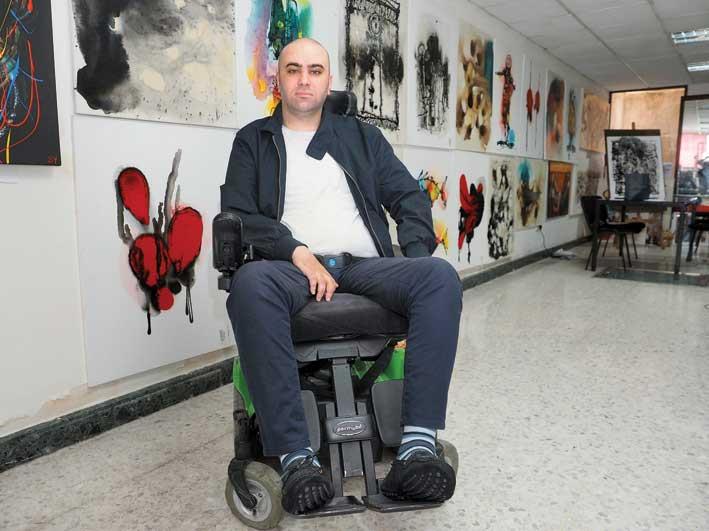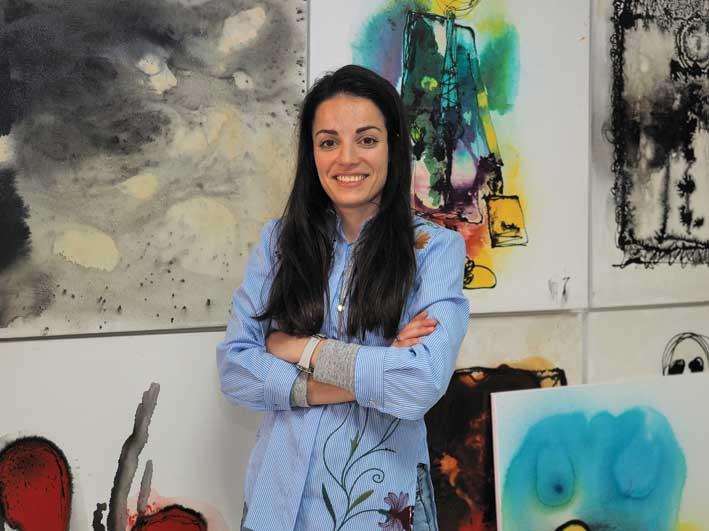Bjorn Formosa has become a bona fide household name. Mention it anywhere - on Facebook, in the workplace or around a dinner table - and people know who he is. After being diagnosed with Motor Neurone Disease (MND) in 2014, Bjorn had a choice: keep a low profile and simply accept the situation, or fight to raise funds so that one day soon, a cure will be found.
Although his prognosis is grim and his health has gone downhill rapidly since he was diagnosed (within a few months of his diagnosis, he could no longer walk and could barely move his hands, and not long ago he was having problems with his breathing, which is a sign of the final stages of the condition), Bjorn is always at the forefront of fund-raising for the cause, be it a organising a pasta night or appearing on Friday talk show Xarabank to promote what can be done to help.

Amyotrophic Lateral Sclerosis (ALS), more commonly known as Motor Neurone Disease, was identified by French neurologist Jean Martin Charcot in 1869. It came to international attention after well-known New York Yankees baseball player Lou Gehrig was diagnosed with ALS in 1939. He died two years later and the disease is sometimes referred to as Lou Gehrig's disease in his memory.
No major research was carried out on the disease until the 1990s, but over the past 10 years there have been a series of ground-breaking advancements, including the discovery of the SOD1 gene, which helped scientists identify a genetic link to the development of familial ALS, as well as the discovery of a genetic link between ALS and frontotemporal dementia (FTD). Funds raised through the Ice Bucket Challenge recently led to the successful identification of the NEK1 gene as a key contributor to ALS.
On the local front, last year a Maltese-French team worked on research that may be crucial to the development of treatment strategies. In addition, together with the University of Malta, through the University's Research Trust, ALS Malta has launched the Motor Neuron Disease BioBank, which will hopefully enable scientists to identify local genes that are present in local ALS sufferers.
However, scientists still do not know exactly what causes the disease, or why some sufferers succumb quickly - most dying within five years of diagnosis - while others, such as theoretical physicist Stephen Hawking who has had the disease for over 50 years now, do not.
Bjorn is well aware that he himself may not reap the benefits of fund-raising, be it local or worldwide. He is, however, hopeful that a cure will be found within the next 10 or 15 years.
In the meantime, he will continue working - but he is certainly not alone. He has a loyal, hard-working team to help him, led by his lovely wife Maria, to whom he popped the question last September and who is constantly by his side. Although they had known each other for over a decade, they officially became a couple only a few months before Bjorn's diagnosis.
They were married on 3 December in Dingli Parish Church and donated all their wedding presents to the Foundation. "Married life is going well. It's all cool," he says with a smile. "Things have finally settled down after the wedding and we're just focused on enjoying our time together. Of course, living together has its challenges, as there is a lot of equipment I need to use and this means a lot of expense. We get some help from the government and from the Foundation: everyone puts in his own bit and you get along."
Speaking of "everyone putting in his or her own bit", just before we started the interview, a lovely lady and her husband came into the ALS Malta headquarters to offer some equipment that will definitely make Bjorn and Maria's day-to-day life that little bit easier.
In fact, during the whole time I was there, people kept phoning or popping in - to offer support (material or moral), book tickets for a fund-raising event or simply to have a quick chat to say how much they admire him. One lady asked him if she could give him a hug; a request to which Bjorn graciously acquiesced.
"Support from strangers is so amazing," he says after the lady had left. "People are so kind-hearted, considerate and generous. They offer support in so many ways, even organising events themselves. In Malta, you know that if the cause is good and you ask for help, you are going to get it."

The next big event on which Bjorn and his team are working is the Malta Art Fair. Since it was established, ALS Malta has had close links to art, with a number of artists - including Mark Mallia, Ed Schembri, Dag Art, Louis Briffa and Roderick Brincat - offering examples of their work to the general public, with proceeds going to the Foundation. Some of these works of art adorn the walls of the Hamrun premises.
The first large-scale art event in aid of ALS Malta was held last year at Xara Lodge in Rabat. This year it will be held between 19 and 21 May at the MFCC in Ta Qali, and will be sponsored by the Malta Presidency and the Malta Arts Council.
"It was a success and it spurred us on to try for something even bigger," says Bjorn. "Most local artists, as well as a fair number of foreign ones, will be exhibiting their pieces and all the proceeds will go to ALS Malta. There will be around 100 exhibition booths for all the artists, as well as a stand where people can make donations."
He tells me that he was not particularly interested in art before the disease struck but now he is passionate about it. "There are loads of metaphors to combine arts and life. Art is beautiful and there is loads of good work being done locally," he says. "At the fair, there will be art of all different styles and genres on display, with activities and events for all ages. Of course, the main aim is to raise funds but we also want to give space to local and foreign artists to exhibit their work and make art accessible to everyone."
Before I go, Bjorn tells me that it has been a good week for him, whereas a few weeks ago things were looking scary: such is the nature of the beast that is ALS.
"You learn loads of things in this situation," he says. "You teach yourself to be more efficient, not to waste time but make the most of it. When you have limited time, this is even more important. It is essential to always have objectives to go after, to use your time in the most productive and sensible manner; to know that something small can result in something huge. It's about really doing something with your life."
More information about ALS Malta can be found on www.alsmalta.org and information about the Malta Art Fair is available on www.maltaartfair.com. Both can also be found on Facebook.